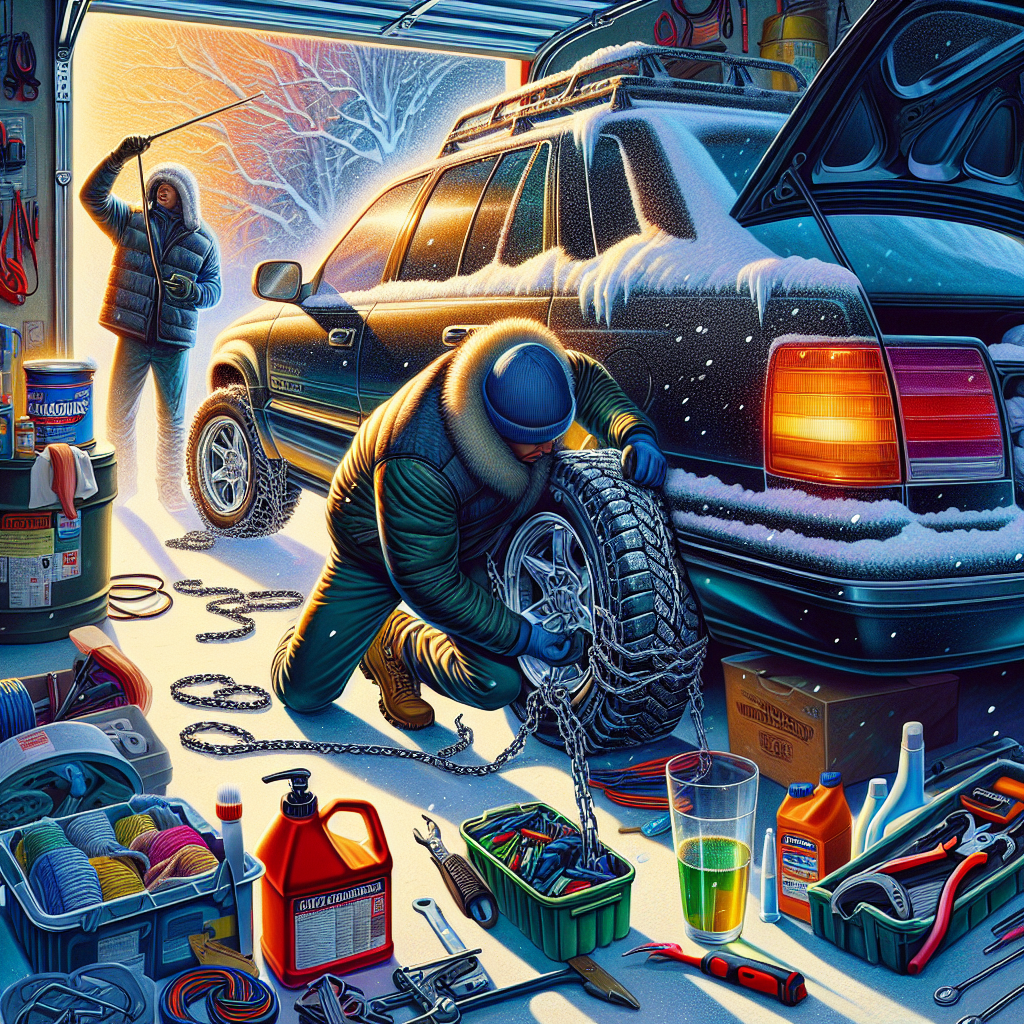As the winter season approaches, it’s crucial to ensure that your vehicle is prepared to handle the challenges that come with cold weather and snowy roads. Taking the time to properly winterize your car can not only improve its performance but also enhance your safety on the road. In this article, we will discuss the essential checklist for winter car preparation, covering three key subtopics: checking and replacing fluids, tires and brakes, and cold weather accessories.
Checking and Replacing Fluids: Essential Winter Car Maintenance
One of the most critical aspects of winter car prep is checking and replacing fluids. Cold temperatures can have a significant impact on the performance of various fluids in your vehicle. Start by checking the engine oil and ensuring it is at the recommended level. Cold weather can cause oil to thicken, making it less effective in lubricating the engine. Consider switching to a winter-grade oil with a lower viscosity to ensure optimal engine performance.
Next, inspect the coolant or antifreeze levels. Antifreeze is essential for preventing the engine from freezing in extremely cold temperatures. Ensure that the coolant mixture is at the recommended ratio of antifreeze to water, typically 50:50. Additionally, check the condition of the windshield washer fluid and replace it with a winter formula that contains antifreeze. This will prevent the fluid from freezing on your windshield, ensuring clear visibility while driving.
Lastly, don’t forget to check the condition and level of your brake fluid. Cold weather can affect the performance of your brakes, so it’s crucial to have the right amount of fluid and ensure it is in good condition. If necessary, have the brake fluid flushed and replaced to maintain optimal braking performance during winter.
Tires and Brakes: Ensuring Safety on Snowy Roads
When it comes to winter car prep, tires and brakes play a vital role in ensuring your safety on snowy roads. Start by inspecting your tires for proper tread depth. In winter conditions, it is recommended to have at least 6/32 of an inch of tread depth for adequate traction. If your tires are worn out, consider replacing them with winter tires or all-season tires that are specifically designed for cold weather conditions.
Additionally, check the tire pressure regularly throughout the winter season. Cold temperatures can cause tire pressure to drop, leading to reduced traction and handling. Refer to your vehicle’s manual for the recommended tire pressure and adjust accordingly. Properly inflated tires will provide better grip on snowy and icy roads, improving your vehicle’s overall stability.
Alongside tires, brakes are crucial for safe winter driving. Have your brakes inspected by a professional to ensure they are in good condition. Cold weather can affect brake performance, so it’s essential to have the brake pads, rotors, and calipers checked for wear and tear. If necessary, have them replaced to maintain optimal braking power.
Cold Weather Accessories: Equipping Your Vehicle for Winter
Equipping your vehicle with the right cold weather accessories can make a significant difference in your winter driving experience. Start by investing in a set of quality snow chains or winter traction mats. These accessories can provide additional traction on slippery roads, especially in areas with heavy snowfall. Make sure to practice installing and removing them before the winter season to ensure you can do it quickly and efficiently when needed.
Another essential accessory for winter car prep is a good set of windshield wipers. Cold temperatures can cause wiper blades to become stiff and less effective. Replace your old wiper blades with winter-specific blades that are designed to withstand freezing temperatures and provide optimal visibility.
Lastly, consider carrying a winter emergency kit in your vehicle. This kit should include items such as a snow shovel, ice scraper, jumper cables, flashlight, blankets, and extra warm clothing. In case of an emergency or breakdown, having these items readily available can provide comfort and safety until help arrives.
In conclusion, winter car prep is essential for a reliable and safe winter ride. By following the checklist mentioned above, including checking and replacing fluids, ensuring proper tire and brake maintenance, and equipping your vehicle with cold weather accessories, you can enhance your vehicle’s performance and your safety on the road. Remember, taking the time to prepare your car for winter can make all the difference in your winter driving experience. Stay safe and enjoy the winter season!
For over 50 years, the team at Dabler Auto Body has been providing high quality collision repair in the Salem, Oregon area. All of our repairs are covered by our Unlimited Lifetime Warranty, ensuring that our repairs will be error-free, giving you that peace of mind you deserve. Give us a call today at 503.585.8066 or click here to start your FREE estimate.

